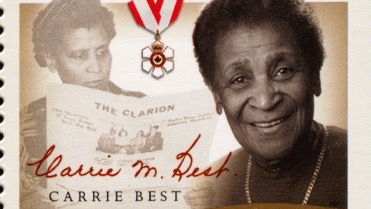
Modern-day artist rendering of Richard Preston by Henry Bishop. Photo: Black Cultural Centre for Nova Scotia / Facebook. Credit: Black Cultural Centre for Nova Scotia / Facebook
Richard Preston (c. 1791 – 16 July 1861) was a religious leader, abolitionist, and community builder who played a key role in the African Nova Scotian community and the fight against slavery. He was born into slavery in Virginia, but he purchased his freedom in 1816. After relocating to Nova Scotia in search of his mother, who had escaped slavery, Preston became a prominent figure in the region’s African community.
Personal Life
Little is known about Preston’s early life, but it is believed he was born into slavery in Virginia. After buying his freedom, he moved to Nova Scotia in search of his mother, who had escaped slavery as part of the 2000 African Americans who fled to the British during the War of 1812. When he found her in Preston, Nova Scotia, he adopted the community’s name in honour of the freedom he had found. Preston was described as a light-skinned, 6’1″ man known for his eloquence and sense of humour. He never married.
Ministry
Preston was mentored by Baptist minister John Burton and became an influential church and community leader in Nova Scotia. He was instrumental in establishing 11 Baptist churches across the province. His ministry included advocacy for education and the abolition of slavery. Preston’s travels to England helped him gain support for the abolitionist movement and provided the funds necessary to build the African Chapel in Halifax. He returned to Nova Scotia as a trained minister and president of the abolitionist movement in Halifax. His efforts led to the founding of the African Abolition Society and the African Baptist Association.
Legacy
Richard Preston’s work in Nova Scotia left a lasting impact on the African Nova Scotian community. In recognition of his contributions to religious leadership and the abolitionist cause, he was designated a person of National Historic Significance in 2005. His work laid the foundation for the African Baptist churches in Nova Scotia, and his establishment of the African Chapel on Cornwallis Street marked a critical milestone in the community’s self-determination. Though he passed away in 1861, his influence remains strong, and his community-building legacy lives on through the churches and organizations he founded.
Preston’s failure to establish democratic succession procedures for his organizations led to struggles after his death, but his vision for community and emancipation persists in the communities of East and North Preston, Nova Scotia, which are often mistakenly thought to be named after him but, in fact, inspired his own name.



